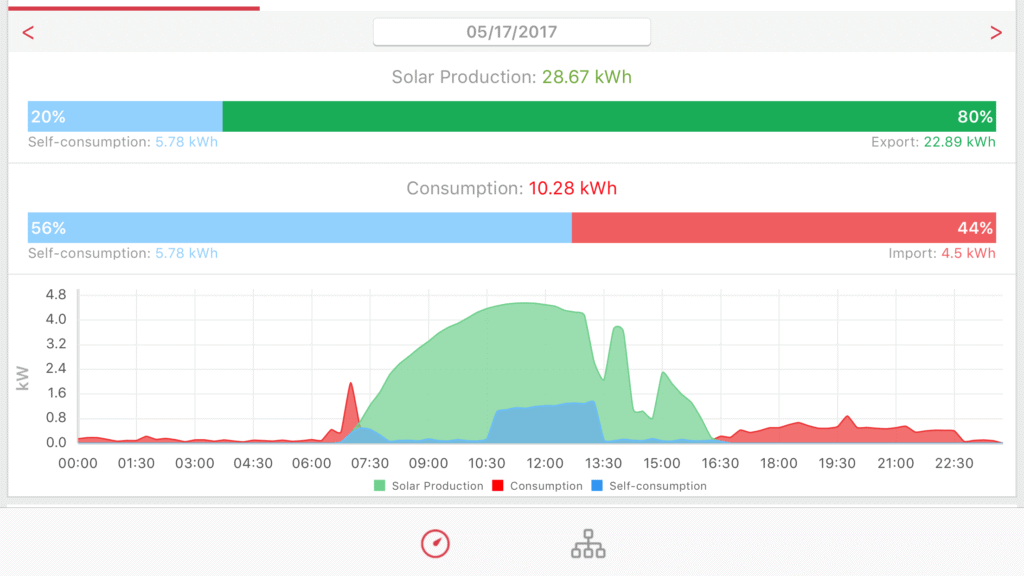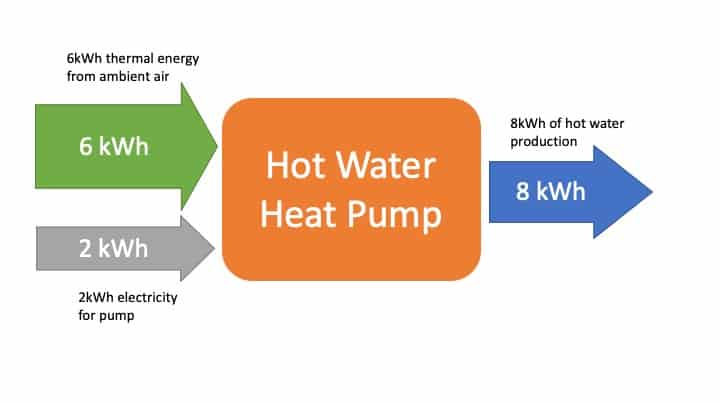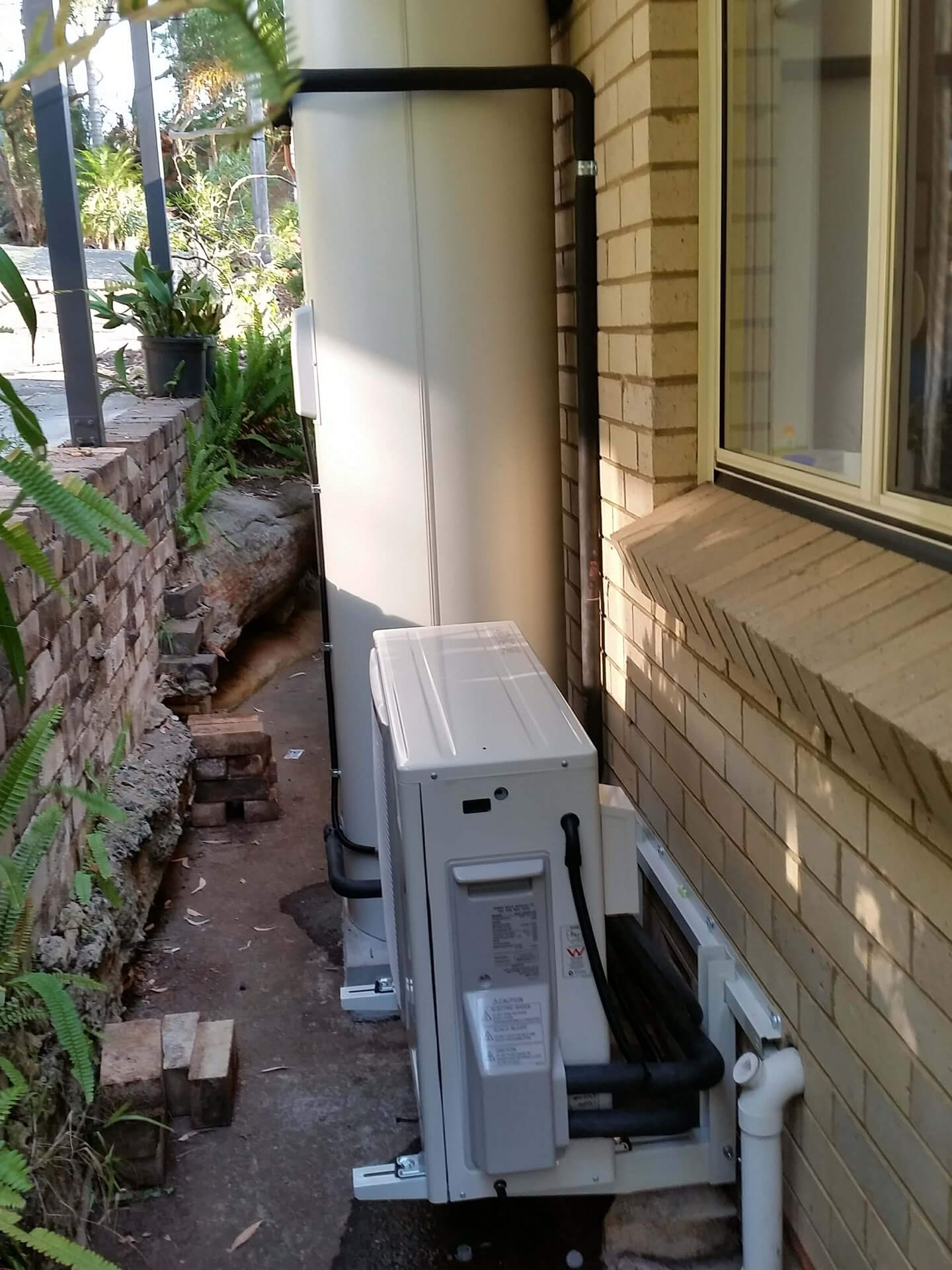It’s time to maximise your solar, or go renewable if you can’t get rooftop solar.
Introducing Sunny Shire’s Hot Water Heat Pump Bulk Buy:
- Sanden Hot Water Heat Pump with 315L stainless steel tank
- Supply & Installation by Hot Water in a Hurry (Plumbing Company based in Illawong)
- $3,999 (*) incl. GST
- 6 year warranty on heat pump
- 15 year pro-rata warranty on tank
* – $3,999 is for replacement of an existing electric hot water system with no complicating factors. Additional costs will apply for removal of gas or solar hot water systems, difficult access, electrical wiring changes or long distance between the tank and the compressor. These will be shown on your quote.
We have road tested the product (Jay got one in 2017) and also the installer (Jonathan & Jay both have heat pumps installed by Jeremy from Hot Water in a Hurry)
Why Heat Pumps?
There are three main reasons we recommend heat pumps for hot water for shire homes:
- they are highly efficient – using about 75% less electricity than conventional hot water
- they use renewable energy by capturing heat from the air outside
- they combine perfectly with solar because they only draw ~1kW of power when operating and can be run during solar hours
A hot water heat pump is like an air conditioning compressor connected to a hot water tank. They use the refrigeration cycle to draw heat from the air outside and heat water. For every 1kWh of electricity used, they produce around 4kWh of hot water. The other 3kWh comes from the ambient air outside, which is heated by the sun, making heat pumps 75% solar powered in effect. Even when it is cold outside, say 0 degrees, it is 273 degree Kelvin, and there is significant energy in the ambient air. Sanden heat pumps work down to -20 degrees Celcius (they are designed to handle the climate in Japan).
Read more about why Jay decided on a Sanden Heat Pump here: http://sunnyshire.org.au/why-i-chose-a-heat-pump-hot-water-system/
Are Heat Pumps better than Solar Hot Water?
This is often hotly debated. Many people in the industry have been scarred by the poor quality unreliable heat pumps that first dominated the Australian market, so do not speak highly of heat pumps. Luckily there are heat pumps available now that are just as reliable and easy to service, if not better than solar hot water systems.
When you produce electricity or hot water from the sun, you have times of excess and times of shortage. In summer, solar hot water produces excess hot water, often leading to water wastage. Some manufacturers specifications even recommend covering parts of solar hot water systems in summer. In winter, solar hot water systems need top up electricity, right at a time when there is less solar PV around. It is very difficult to boost solar hot water using power from solar PV. As we become more solar powered in NSW, this will become an issue, and electricity may be more expensive in winter. For these reasons, Solar Hot Water is more suitable to tropical climates where the sun’s heat is more consistent year round.
Solar hot water also takes up rooftop real estate, where solar PV panels can go and power all appliances such as hot water heat pump, dishwasher, lighting and air conditioning. It only takes about 2 solar PV panels to offset the electricity usage of heat pumps across the year.

Image: Jonathan’s heat pump operating from 11:00am to 1:00pm at ~1kW
More info on Jonathan’s heat pump: http://sunnyshire.org.au/how-to-save-money-with-a-hot-water-heat-pump/
They are actually another form of renewable energy
Heat pumps can produce 8kWh equivalent of hot water energy using 2kWh of electricity. This gives it a Coefficiency of performance (COP) of 4.0, or efficiency of 400%. It is not magic, but it does sound like it!
Heat pumps use a refrigerant loop much like refrigerator to draw thermal energy from the ambient air outside to heat the hot water. This is shown diagrammatically below:

Refridgerators pull heat out of the inside of the fridge and put it outside the fridge. Hot Water Heat Pumps draw heat from outside air and put it in the hot water tank. A good heat pump, like the Sanden Eco, can do this down to -10 degrees. Even at sub-zero temperatures, there is enough energy in the air for the heat pump to work.
Of course, our outside air is warmed by the sun. So as the heat pump draws this energy, it is another form of renewable solar power. This is why Heat Pumps create STC Renewable Energy Certificates like rooftop solar does, providing an upfront rebate of $1,000 for heat pumps.
They can provide a new ‘baseload’ for solar power
Heat pumps and solar PV go perfectly together. Heat Pumps draw 1kW for 2 hours each day, and can be set to turn on each day during solar hours to utilise your rooftop solar.
But this also applies to the grid more broadly. We are getting more and more solar in our grid, through distributed rooftop solar and solar farms. One thing that may hold up this investment is we generate so much solar, that it becomes abundant so less valued. For solar farm investors in particular, this can mean reduced revenues. For grid operators, they have to manage this excess power. This is already happening in South Australia where solar can meet over 50% of middle of the day demand, sending wholesale prices negative.
Currently much of our hot water is heated overnight to create ‘baseload’ for its brown coal power stations. For NSW’s 2.7 million homes, if we switched them all from gas hot water and overnight electric power, we could create a new baseload for solar of 2,700 MW every day for 2 hours. As we use the hot water through the day overnight, it is a form of storage. 2.7 million homes with hot water heat pumps and tank would be the equivalent of a 21,600 MWh battery, equivalent of 166 SA Tesla Big Batteries.
Victoria current generates 1,400 MW from rooftop solar and is reaching 500MW from solar farms so far, with 800MW confirmed and on the way. Adoption of hot water heat pumps and use during the middle of the day could help support much more.
This change would drive more investment in solar, allow grid operators to manage this increase solar and reduce support of the brown coal power stations.
About Sanden
Heat pumps have a troubled history in Australia. For many years the recommended heat pump was a repackaged or rebranded Dux heat pump, often by Rheem. These heat pumps were unreliable. Most plumbers have been to a family desperate for hot water after their Dux heat pump has failed. Now most plumbers recommend against heat pumps due to their unreliability, all due to the poor quality of heat pumps that dominated the early market.
Sanden is the premium hot water heat pump, with industry leading warranty for heat pump (6 years) and tank (15 years pro-rata). We have been monitoring the industry, with Sanden the preferred premium heat pump, and with many customer reports of reliable and efficient performance. Sanden is also very quiet, which can be an issue with other heat pumps if close to neighbours. We also recommend heat pumps are operated from mid to late morning to take advantage of warmer air, eliminate noise issues and avoid peak electricity pricing before 9am and after 2pm. Sanden heat pumps also use a more Ozone-friendly refrigerant gas (R744) than most other heat pumps.
More info: https://www.sanden-hot-water.com.au/why-choose-sanden-heat-pumps


